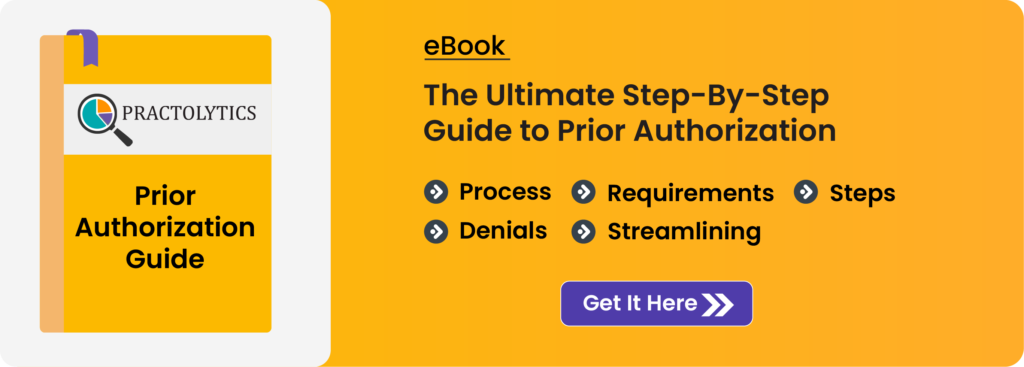Root Causes of Healthcare Fraud Abuse Waste
In healthcare, fraud, waste, and abuse occur as a result of errors. This adds to incorrect coding, billing, and unnecessary treatments to claim improper payment. Day-by-day false claiming actions are rising.
Patients can be affected by practices like false billing, Medicare scams, false claims, and others. It is essential to have an understanding of the most prevalent fraudulent practices in order to avoid this happening. Learn more by reading on.
Table of Contents
Understand the Basics: Fraud and Abuse
We’ve all heard the term “fraud,” but what exactly are the fraud actions involved in healthcare claims? When someone uses their knowledge to commit fraud, they do so by falsehood or untruth.
Performing these actions in healthcare claims can give providers an unfair advantage by allowing them to receive extra payments.
There are always investigations into medical fraud, which can lead to fines, penalties, or both. A patient’s health can also be harmed by medical fraud when unnecessary procedures are carried out.
Frauds In Healthcare Claims
Fraudulent actions may involve both patients (or insurance members) and providers.
Providers Fraudulent Acts
- Up coding: Knowingly billing for services at a level of complexity higher than services actually provided or documented in the medical records
- Submitting CPT codes that are precise for the services provided, even though it is medically unneeded. For example, say a physician recognizes that the individual requires a regular check-up but performs an elaborate check-up in order to receive higher payments from payers. Filing the CPT code for the extensive check-up still counts as fraud.
- Knowingly billing for services not furnished, supplies not provided, or both, including falsifying records to show delivery of such items.
- Providing false data on their qualification during credentialing.
- Billing duplicate claims. Submitting multiple claims for a single service with knowledge.
- Switching the prescribed medications (drugs).
- Knowingly ordering medically unnecessary items or services for patients.
Insurance Members’ Fraudulent Acts
- Using a different person’s healthcare coverage card to get paid. This is done by influencing others to provide their health insurance number and personal details to commit false claims, thus leading to information theft.
- Selling medications or drugs received through insurance benefits.
- Provide false or irrelevant information in claims.
Abuse in Healthcare Claims
Abuse describes practices that may directly or indirectly result in unnecessary costs to the Medicare Program. Abuse includes any practice that does not provide patients with medically necessary services or meet professionally recognized standards of care.
The difference between “fraud” and “abuse” depends on specific facts, circumstances, intent, and knowledge.
Here are some examples of how Abuse occurs:
- Incorrect use of medical codes. Occurs when the treatments stated on the doctor’s bill differ from the practices listed on the hospital bill.
- Charging excessively for services or supplies
- Billing the brand name instead of the generic name of a drug to gain an unfair edge because generics are 80% to 85% less expensive than the brand name.
- Upcoding is when a provider assigns an inaccurate billing code to a medical procedure or treatment to increase reimbursement.
- Unbundling in the coding services. Unbundling takes place when a provider files separate CPT codes for each treatment, despite the fact that a relevant integrated CPT code covering the entire procedure is usable.
Waste of Medical Resources!
WASTE is the overuse of services (not caused by criminally negligent actions) and resources, directly or indirectly, that results in unnecessary costs to the healthcare system.
Waste in healthcare differs from the previously discussed topics of abuse and fraud. To make it clear, waste in healthcare is due to practices, whereas abuse happens with the actions of physicians in coding and billing. The main distinction is the intention of the act.
However, the result will be the same by unnecessary costs for insurers and the government. It is accepted that waste is caused by poor resource management in medical practices and does not meet the criteria for criminal charges.
Examples include:
- Using higher-priced treatment services that produce poorer results when there is an efficient alternative option available.
- A provider prescribing medications without validating if the member still needs them
- Performing extra laboratory tests that make a difference in coding.
- Inadequate care conversation creates a great deal of waste through unnecessary treatments. This not only has an effect on resources in medical facilities but also harms patients.
- Lack of cooperation among providers is less talked about but more prevalent. This doubles the time and money spent on medical tests.
Laws Addressing Fraud and Abuse
Technology, medical audits, and analytical abilities are the three main problem solvers for this issue. An effective fraud, waste, and abuse tech solution will offer documentation, audit preparation, and reporting. Internal auditing can be advantageous for health plans because it stops fraudulent payments.
There are numerous agencies and regulations in place to avoid fraud and abuse. Following their guidelines can help to reduce them. These Laws include:
- The False Claims Act (FCA)
- Physician Self-Referral Law (Stark Law)
- Anti-Kickback Statute (AKS)
- Health Insurance Portability and Accountability Act (HIPAA)
- Social Security Act, which includes the Exclusion Statute and the Civil Monetary Penalties Law (CMPL)
- United States Criminal Code
Bottom Line
Physicians are not enigmatic beings who arrive from another world and never make a mistake in life. Some errors and mistakes occur without your awareness. When discussing about upcoding, we stated that there are several causes for this error, but human error also plays a role, such as discrepancies during information sharing. Overall, a lack of comprehension of established laws would also be the cause.
Medical coding requires a lot of attention and effort. At Practolytics, we place a high value on this in order to provide the best solutions to your long-term issues. Our certified coders and dedicated quality assurance staff leave no room for error. We are familiar with your insurance policies and can recommend the best for your benefits.
ALSO READ – Effective Documentation: A Crucial Factor in Revenue Management Success
Talk to Medical Billing Expert Today — Get a Free Demo Now!






